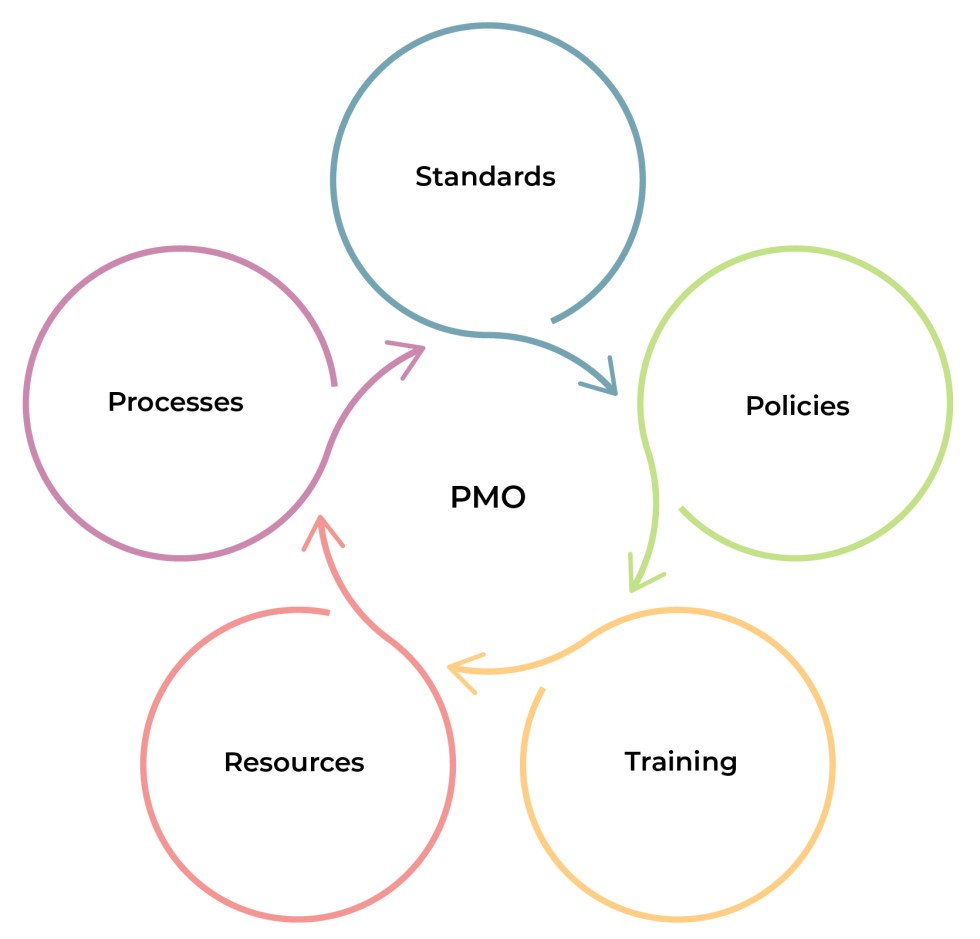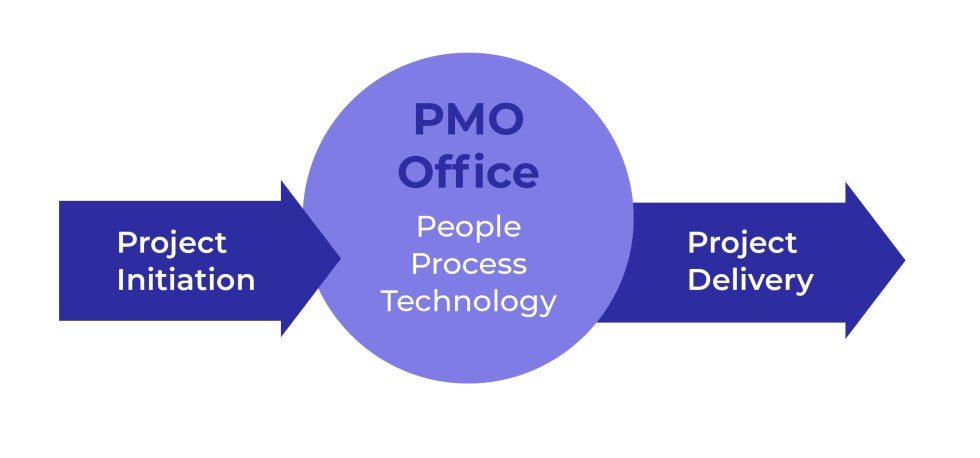Project Management Guide
Project Management Guide
What Is Project Management?
What Is a Project?
Why Is Project Management Important?
Project Life Cycle Phases
- Project Initiation
- Project Planning
- Project Execution
- Project Monitoring
- Project Closure
Project Management Methodologies
- Waterfall Project Management
- Critical Path Method
- Critical Chain Project Management
- Agile Project Management
- Scrum Project Management
- Kanban Project Management
- Lean Project Management
- Six Sigma Project Management
- PRINCE2
- PRiSM
- PMBOK Method
Project Management FAQ
What is Project Management Office (PMO)?
A Project Management Office, also known as PMO, is a department that establishes and implements best practices for projects. The PMO keeps an eye on project management, planning, and execution standards within an organization.
The PMO is also a center for documentation and metrics. In this way, the PMO lays down processes and methods that conform to the highest industry standards.

According to one study by the Project Management Institute, 80% of high-performance organizations have a PMO in place. 72% say that there is a strong alignment to their organizational strategy.
Having an efficient PMO is important for companies that want to make a success of their projects in the long term. To help you understand its importance, we’ve broken down this piece into the following sections:
Roles of A Project Management Office
Responsibilities of a Project Management Office
Functions of a Project Management Office
Project Management Office Software
Project Management Office Certification
“At the end of the day, PMOs are in place to help an organization deliver value to their stakeholders to projects and programs,” says Brian Weiss, vice president, practitioner career development of the Project Management Institute.
Roles of A Project Management Office

Strategic planning
Overall, the PMO is not specifically associated with any one project that is being carried out. Instead, it takes an overview of all projects. Over time, it can establish which ones worked well, and which ones didn’t. It can therefore advise the management on which projects to consider and which ones to avoid. In this way, it can create alignment between the company’s long-term goals and day-to-day projects.
Best practices
The PMO can lay down the best practices to be followed while carrying out projects. These will be based on company needs and resources. The specific documentation before, during, and after projects is a part of this. Lines of communication, handling of external suppliers, and managing stakeholders are other important elements.
Training
Project personnel may sometimes need training in the above practices. This is an important role that is also played by the PMO. In this way, it can ensure that the company’s operations are focused and streamlined.
Data and analysis
The PMO is also a central hub for all data relating to projects. This is an important resource for the company to understand its progress towards goals. Analysis of data through tools such as earned value analysis and cost performance index can also reveal strengths, shortcomings, and the way forward.
Responsibilities of A Project Management Office
PMOs can have different responsibilities. It depends on the sizes and needs of companies. Some PMOs have a clear strategic responsibility of ensuring that the company achieves overall targets. Others may have the responsibility of making sure that projects are carried out in a standardized manner.

It is also the responsibility of the PMO to ensure that tools and technology needed for projects are available and kept up to date. PMO experts can advise project managers on the best software required, and how it can help.
At other times, the PMO team is also responsible for the implementation of approved project management practices. PMO specialists can also work in an advisory capacity on certain important projects.
Collecting and maintaining data is also the PMO’s responsibility. It should ensure that such data is analyzed for insights that can help future projects.
For the PMO to carry out its responsibilities effectively, it needs support from the management. It should also partner with shareholders, and ensure transparency and proper communication at all times.
In this way, it can increase the understanding of its role, and earn the trust of all concerned.
Functions of A Project Management Office
There are several important functions that a PMO carries out daily, based on the roles and responsibilities outlined above.
To begin with, it makes sure that it is providing the right inputs to the right people for effective decision-making. Auditing, helping with project plans, and conducting reviews are some ways of doing this.
Since the PMO is also responsible for standardized processes, one of its functions is to oversee and encourage their adoption across projects. It can point out to project managers the advantages of such ways of working. Based on feedback from the field, this can also be modified and improved.
For management and stakeholders, an important function of the PMO is to source valuable data concerning resource management and financial viability. Risk analysis and return on investment are some factors here. Variances can be estimated and corrective action suggested.
Another broad function of the PMO is to look at multiple projects and see how resources can be optimized across them. Shared resources and dependencies can be charted and managed. For properly implementing all of the above, the PMO also has the responsibility to be agile. It should keep up with strategy shifts, environment changes, and the introduction of new technologies and processes.
Project Management Office Software
To perform all of the above functions efficiently, most project management specialists in a PMO use specialized software. The best software makes their work more efficient, makes analysis simpler, and can be used across the life-cycle of projects.
The software can provide valuable tools such as an individual or joint project roadmap, real-time dashboards, charts, timesheets, and resource management features. In this way, PMOs will be able to monitor plans, schedules, processes, and progress across projects. With such software, the PMO can allocate resources across projects, check for dependencies, come up with analytical reports,? compare actuals and estimates, and create a valuable archive of information.
For example, Microsoft 365 has Microsoft Project, a powerful technique that makes getting started and managing projects both simple and easy. It does this with features such as dynamic scheduling and interactive tracking.
Project Management Office Certification
Given the importance of a PMO to companies managing various projects at one time, there are various training and certification programs available for this necessary role.
The Project Management Institute has various types of certifications, for every stage. Many of these are recognized and demanded by organizations worldwide. Several other courses, both full and part-time, will impart information on the best practices, tools, techniques, and templates.
Clearly, the role and function of the PMO have an organization-wide impact. Many businesses that manage multiple projects, and are keen to develop long-term profitability and capabilities, have benefited from the expertise of a PMO.
